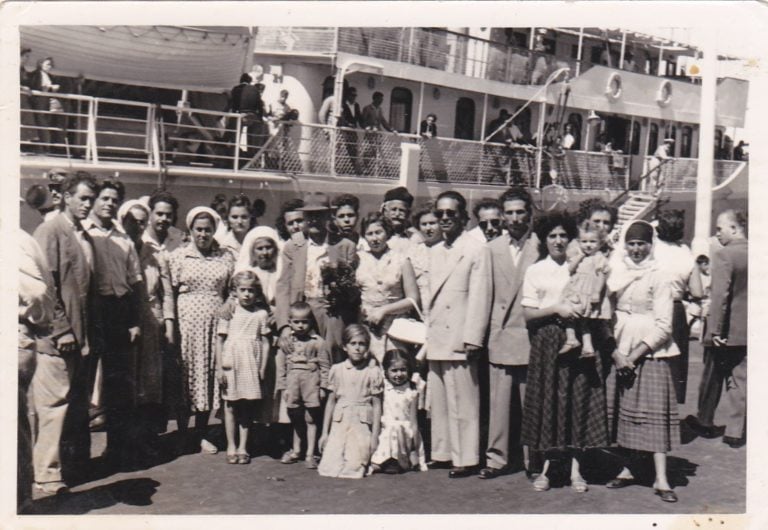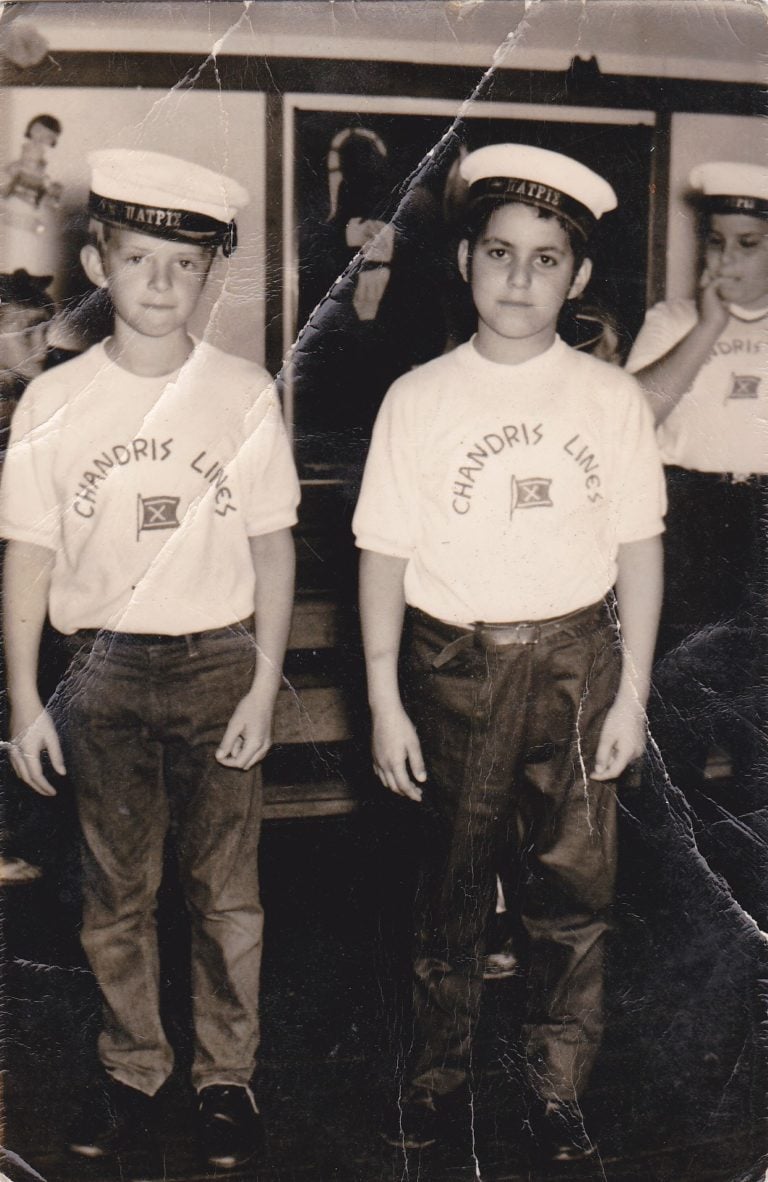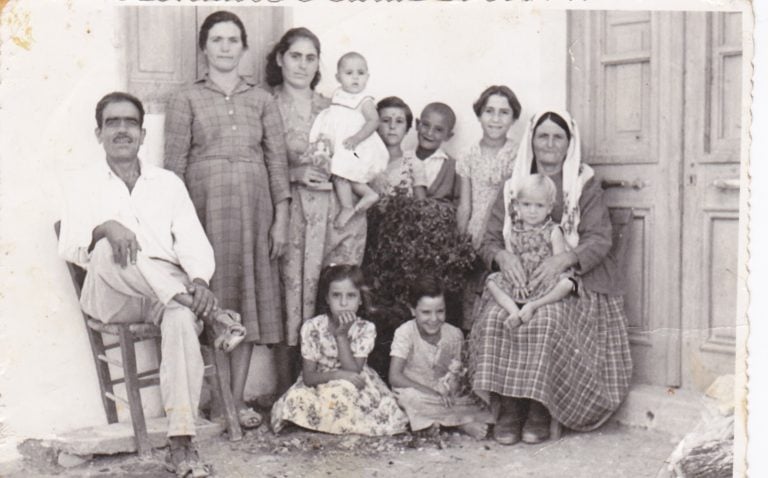“Imagine a young, low-educated mother of three, in a foreign country, leaving her husband and fleeing her own home with no money, documents and with nowhere to go,” says Adelaide-born 59-year-old Christos Despotakis who enjoyed less than ten years of his life with both his parents before his mother decided to leave an untenable marriage and board ‘Patris‘ on the long journey back to Greece.
Born in 1933 in Afandou, a small village on the island of Rhodes, Greece, Christos’ mother, Stamatia, obeying her father’s wishes, reluctantly agreed to migrate to Australia as a νύφη (bride) on a one-way ticket to Australia.
Filled with dreams, hopes and apprehension, the 25-year-old woman boarded the ship SS Orion, following a long and tedious journey from Rhodes to Australia armed with the photograph of a man she had never met in one hand and her dowry agreement in the other.
She arrived at Adelaide’s Outer Harbour in late July 1958 where her future husband was awaiting.

The couple married at the registry office on the same day.
Christos was born a few months later and two more children (daughters) followed.
Over time, it became apparent that the young couple was struggling to co-exist harmoniously.
Stamatia eventually fled home with her three children and filed for divorce.
“I remember those long days in court and my mother desperately trying to explain to the judges with her very limited English what took place at home. There were no migrant family support services and my mother had no financial means, so she found herself pleading to the court to grant her custody of us children and allow her to return home to her family in Greece,” recalls Mr. Despotakis.

“For me, my mother is a real hero, considering the fact that, a divorce back then was a quite rare and almost taboo subject within the small and close-knit Greek community. She nevertheless had the courage to stand up for herself and protect her children at a time when, sadly but understandably, some women chose to remain silent and adhere to their husbands’ needs and constant abuse,” he continues.
After a lengthy and soul-destroying battle in court, 35-year-old Stamatia eventually won custody of her three children.
The young mother along with her son and two daughters boarded ‘Patris’ in 1969.

“The trip was spectacular for us children, however, leaving Australia and knowing I might never return to see my friends and even my father, tempered any feeling of excitement with a sense of sadness
and emptiness that I will never forget,” says Mr Despotakis who still has some fond memories of this voyage.
“I remember the excitement of the passengers going back home, the confetti and streamers from the ship to the wharf as the ship was departing and that huge insignia X (Chandris) on the funnel that for us passengers, symbolised a Greek ship and a journey to Greece,” recalls the father of two young boys.
Not all marriages lived ‘happily ever after’…
There was no onboard entertainment, radio or television in that period, therefore, young children were kept busy with various school-type activities and had daily rehearsals in order to showcase and entertain
the passengers and parents.
In his spare time, ten-year-old Christos enjoyed staring at the ocean, searching for dolphins and flying fish and making plans for the future.

“I knew I was the only male in our family and had responsibilities, therefore, some nights I would sit there and play different scenarios in my head trying to come up with ideas that would help my
mother stand on her own two feet when we got to the other side.”
Occasionally, bad weather conditions such as strong winds, storms and a waterspout would interrupt Christos’ day dreaming.
In the absence of today’s stabilising technology, the ship was almost left in the ocean’s mercy, and during those times, Christos secretly found comfort inside the lifeboats.
Upon her eventual return to Rhodes, Stamatia and the children found refuge and some normality at her family home, but just as life had settled into a comfortable routine, Stamatia’s father passed away.
Christos attended high school and during summer school holidays he worked at hotels. He also supplemented the family’s income by becoming a local tiler’s apprentice for some extra cash.
Stamatia was also working in a ceramics factory and mother and son did everything in their power to support the younger siblings and their beloved yiayia.
The family stayed in Rhodes from 1969 until 1974.
Stamatia then received a warning from the Australian Embassy in Athens, advising all Australians to leave Greece following the Cyprus invasion in 1974.
Concerned about her children’s physical welfare and future education, the young mother borrowed money for the tickets and returned to Australia at age 41. Once again, she found herself searching for housing, which was not an easy task for a single mother with three children and on a low income.
She never remarried and to this day she avoids talking about her difficult past.
“I can understand how she feels as this misadventure had a huge impact on her and us. However, and although I would never wish anyone to go through a similar hardship, the poverty, insecurity and emotional rollercoaster are what have shaped me as a person, giving me strength, independence, resilience whilst instilling a deep level of empathy and compassion for others”.
Christos said he contemplated long and hard before deciding to share his family’s story publicly. He admits it is a sensitive issue and wanted to avoid the resurfacing of hurtful memories for the sake of his ageing mother but at the same time he also felt the need to
speak out and break the silence.
He is now encouraging others to do the same.
“I respect that there are many wonderful love stories that were forged throughout the years of Greek migration in Australia, but at the same time, I believe that some Greek brides, suffered in silence for many years in abusive relationships out of fear, shame, impending gossip or simply for the sake of not breaking up their family. They were trapped and alone in a distant country” says Mr. Despotakis, who is also the owner of the largest Greek radio station in South Australia.
“It is time to speak up and share our stories, good and bad. We need to shed some light on every aspect of Greek migration in Australia and bring some balance to the conversation accepting that this is also part of our broader history in Australia.
“Let’s continue the conversation. It will make us stronger as a community,” he concludes.









